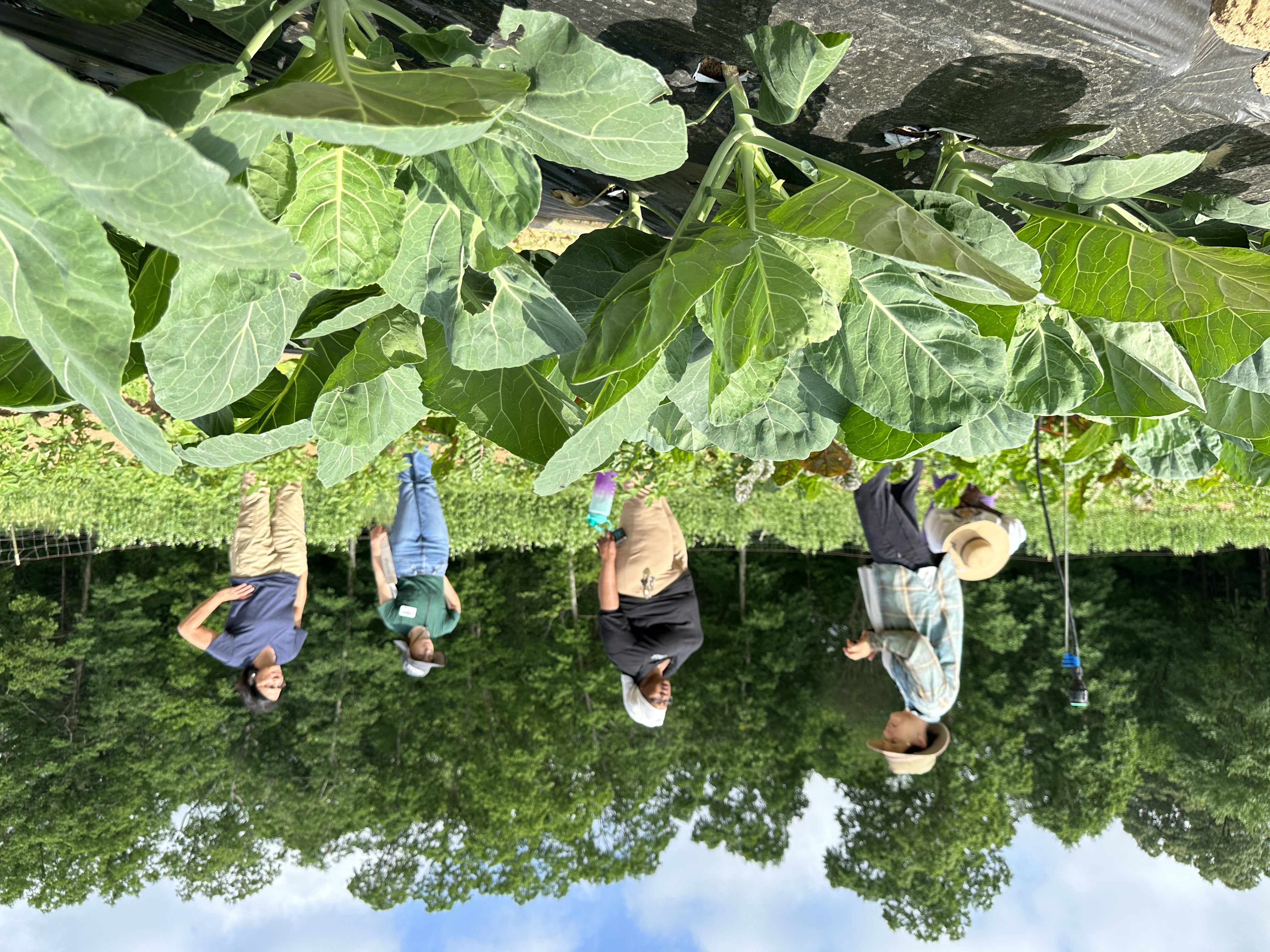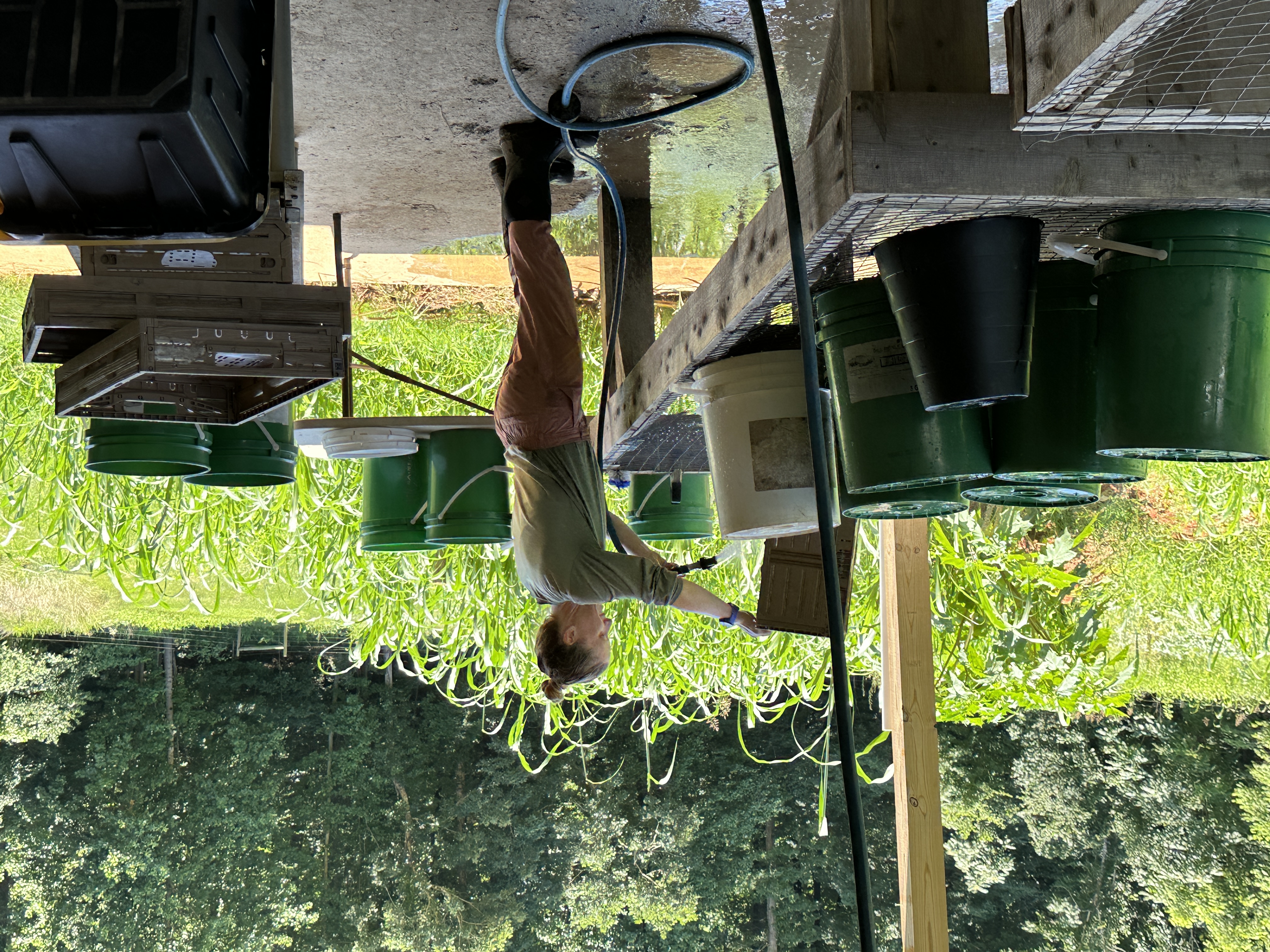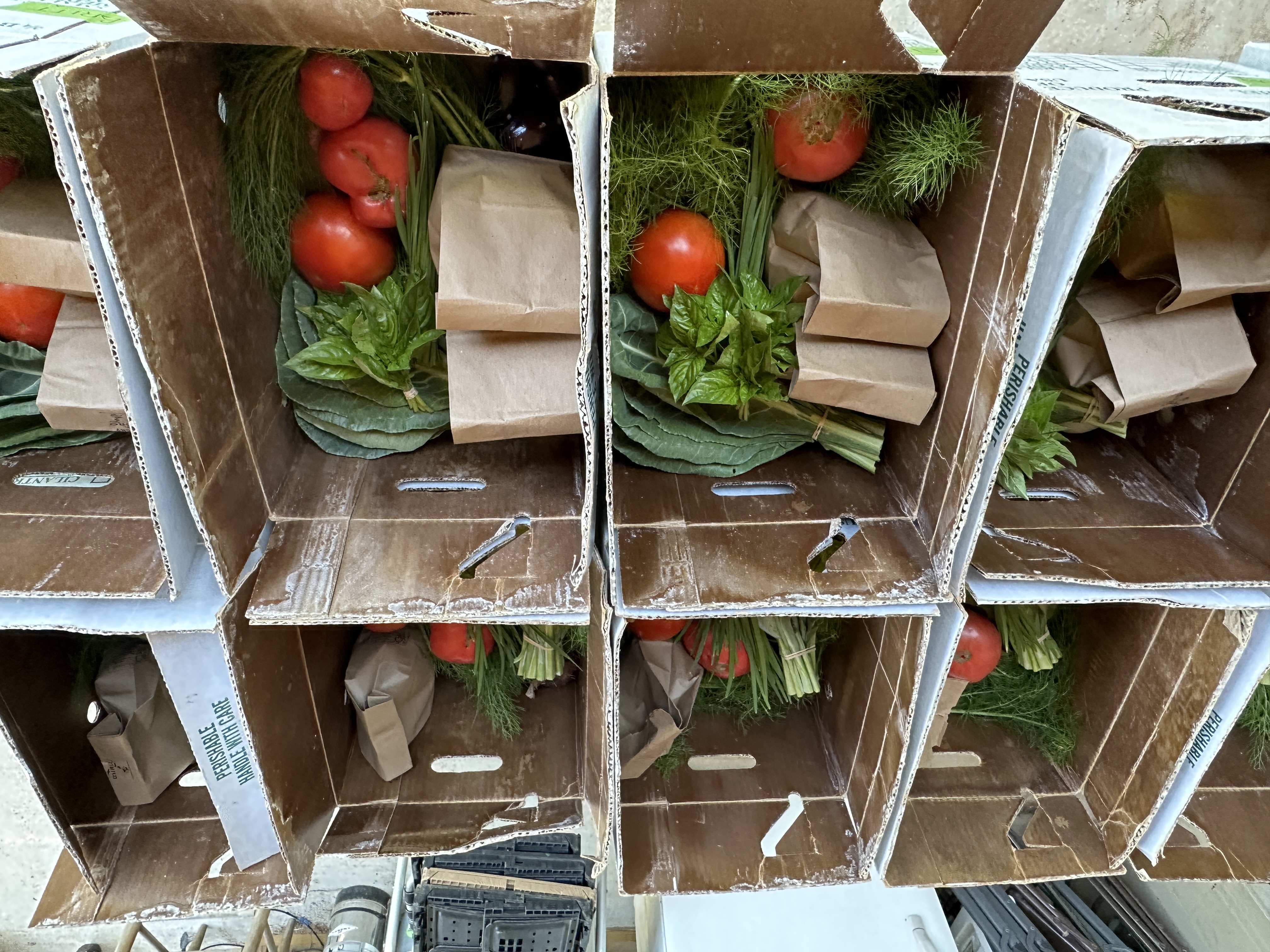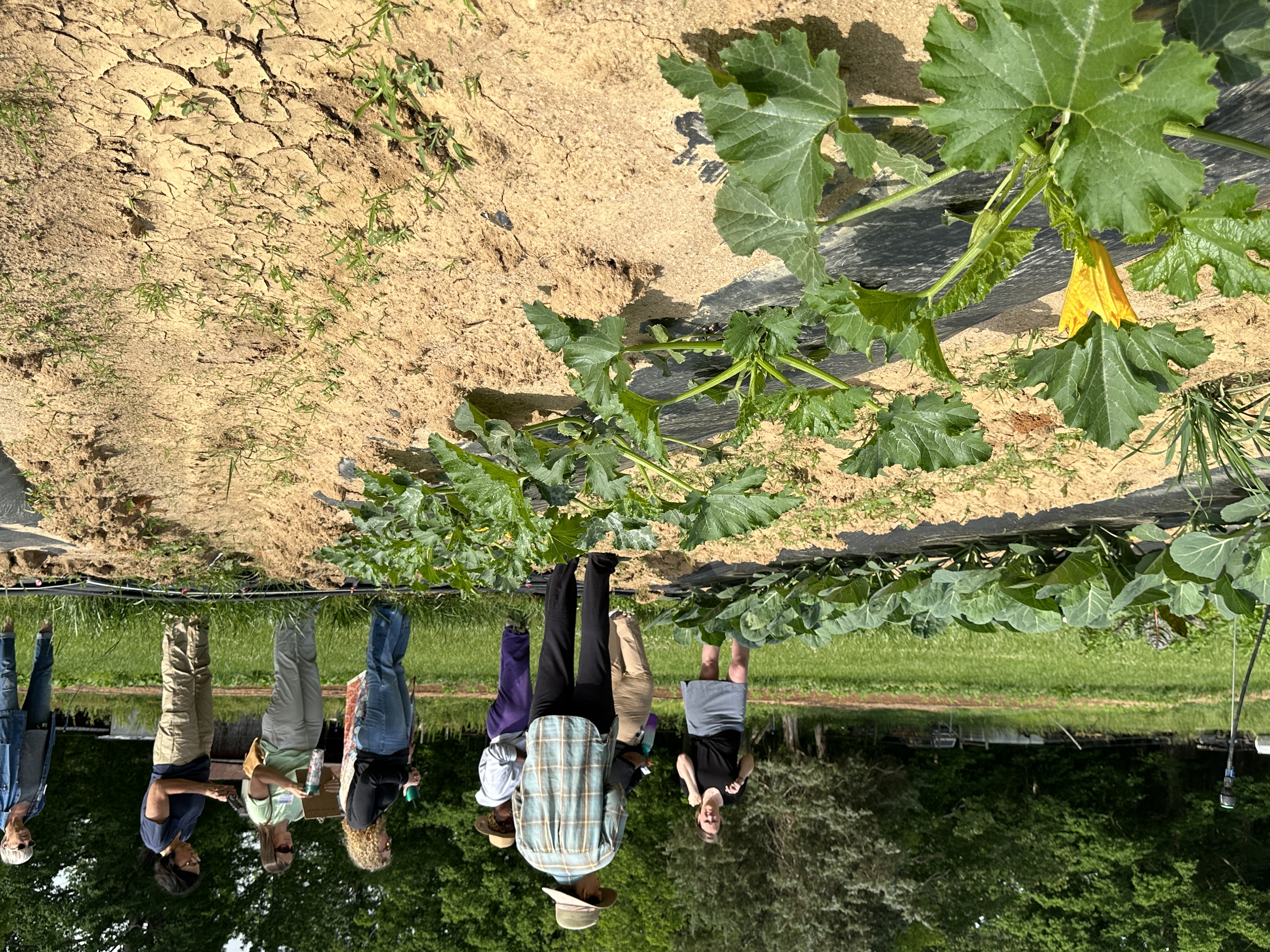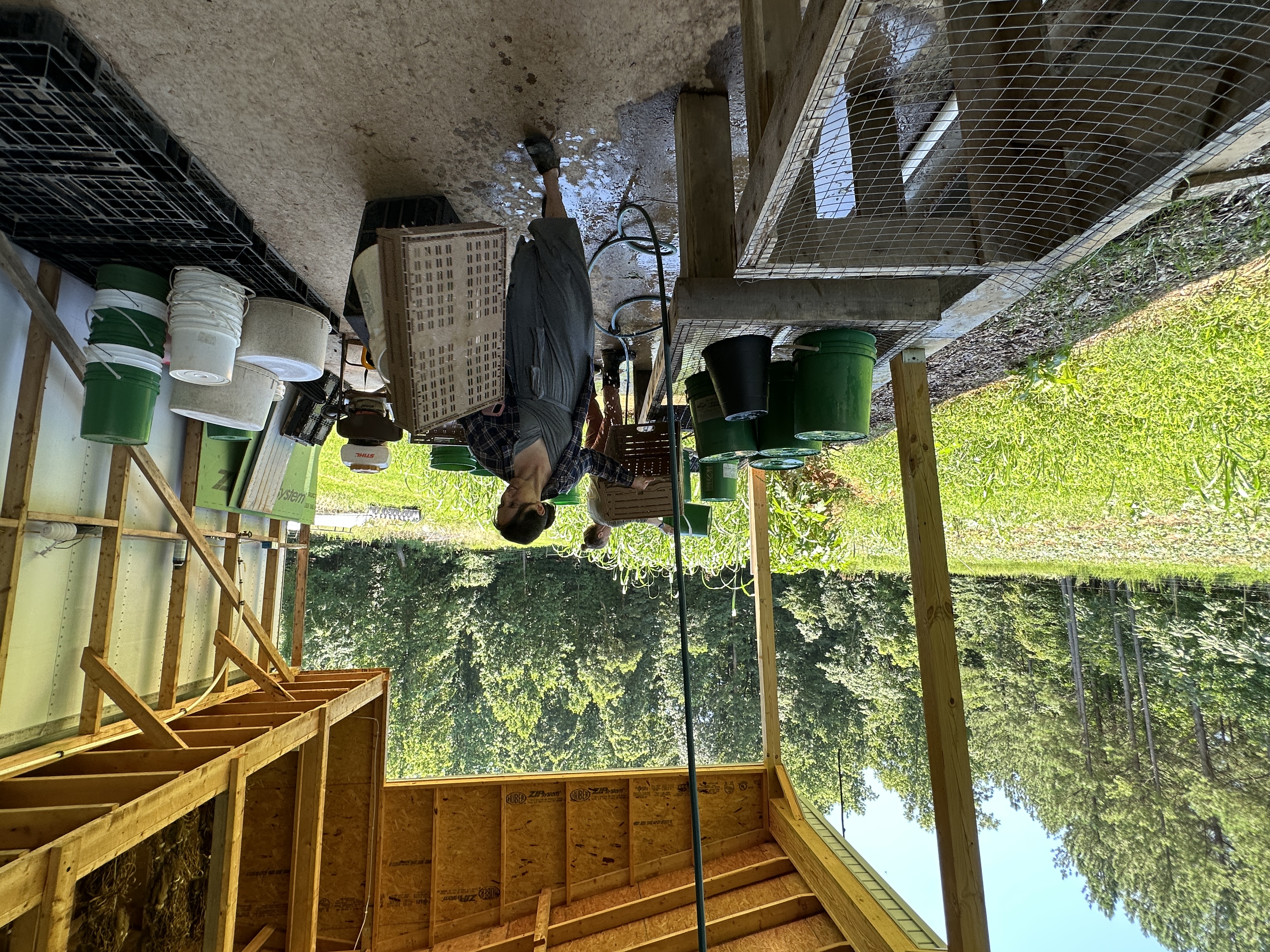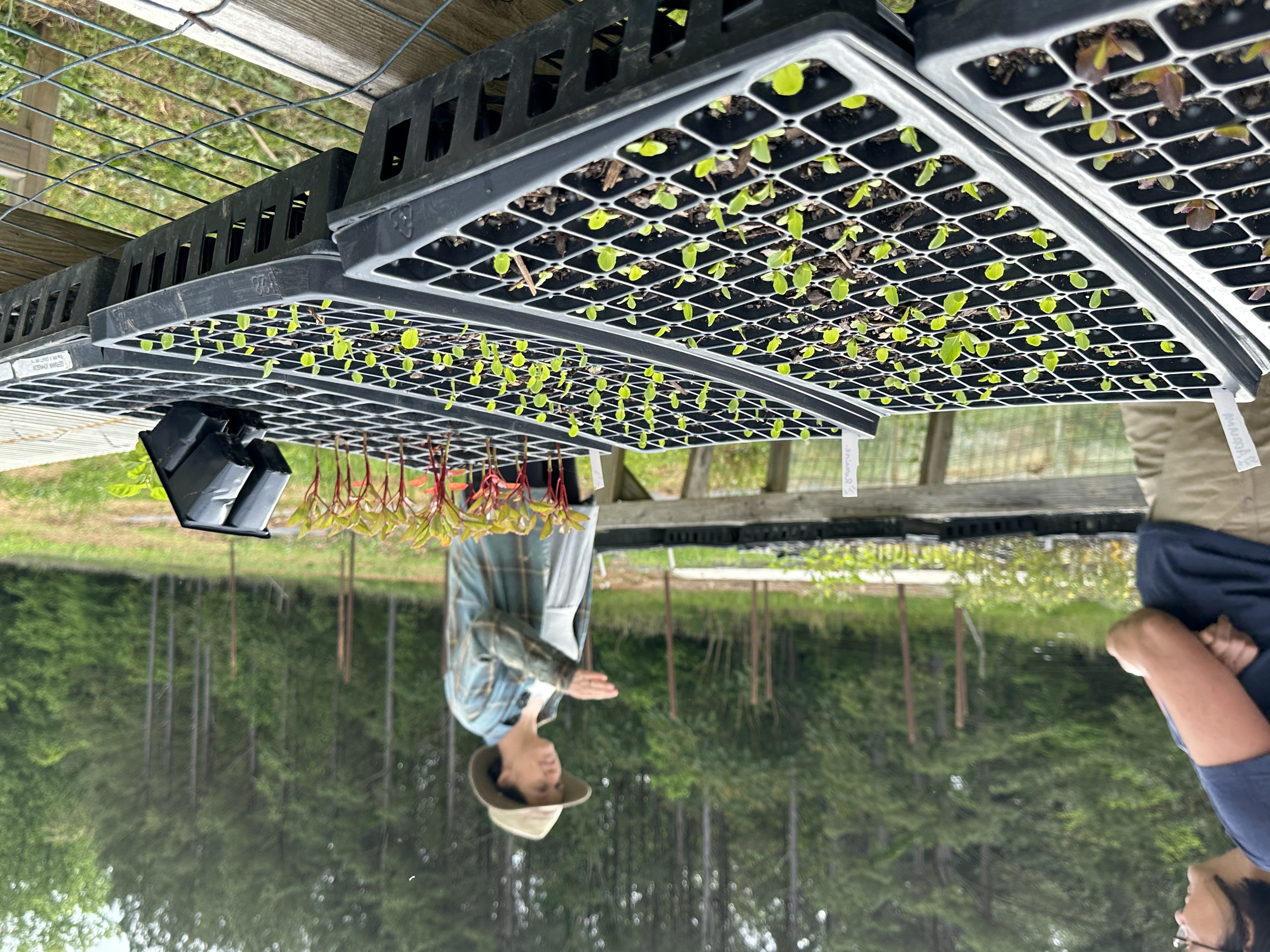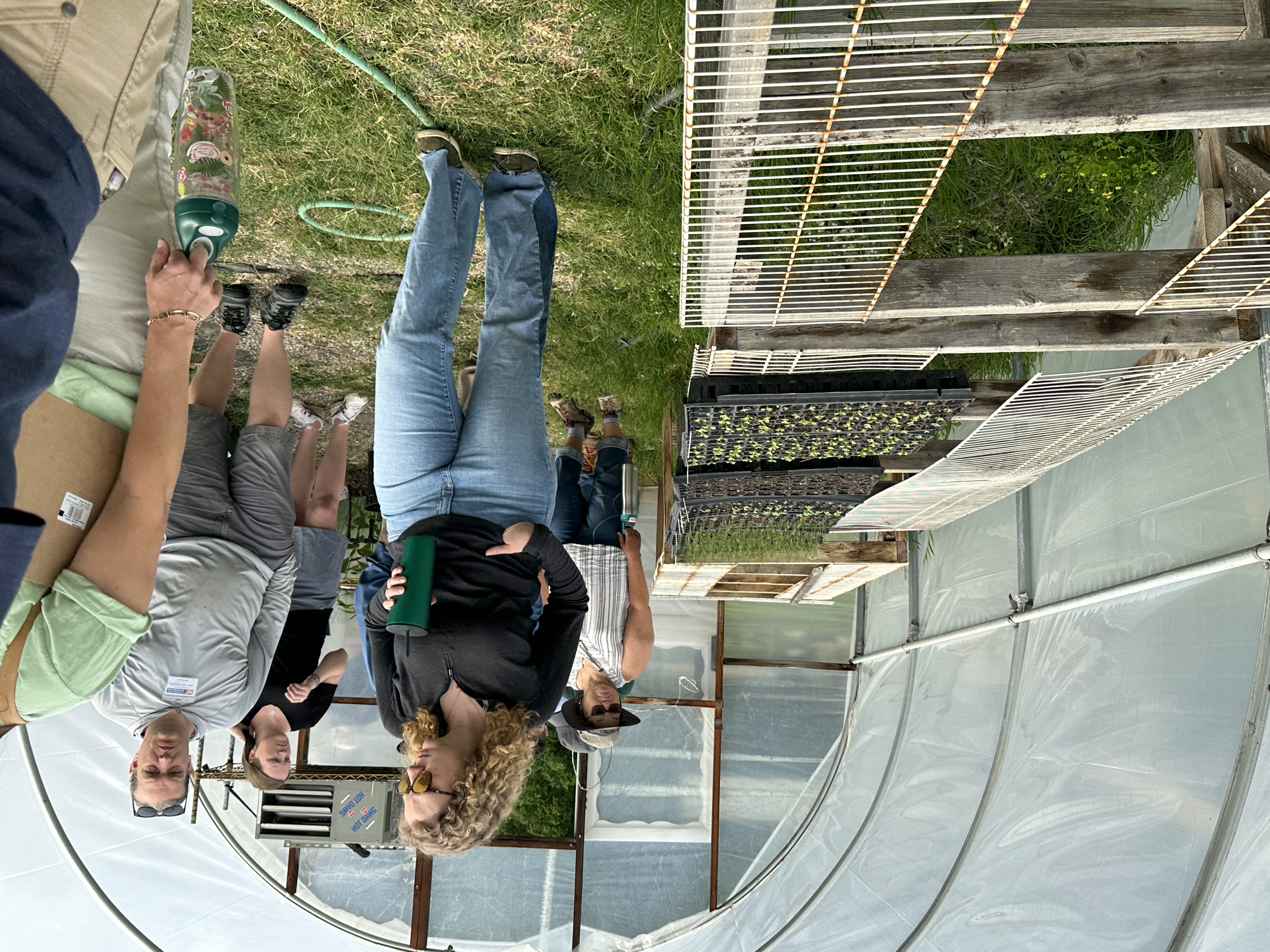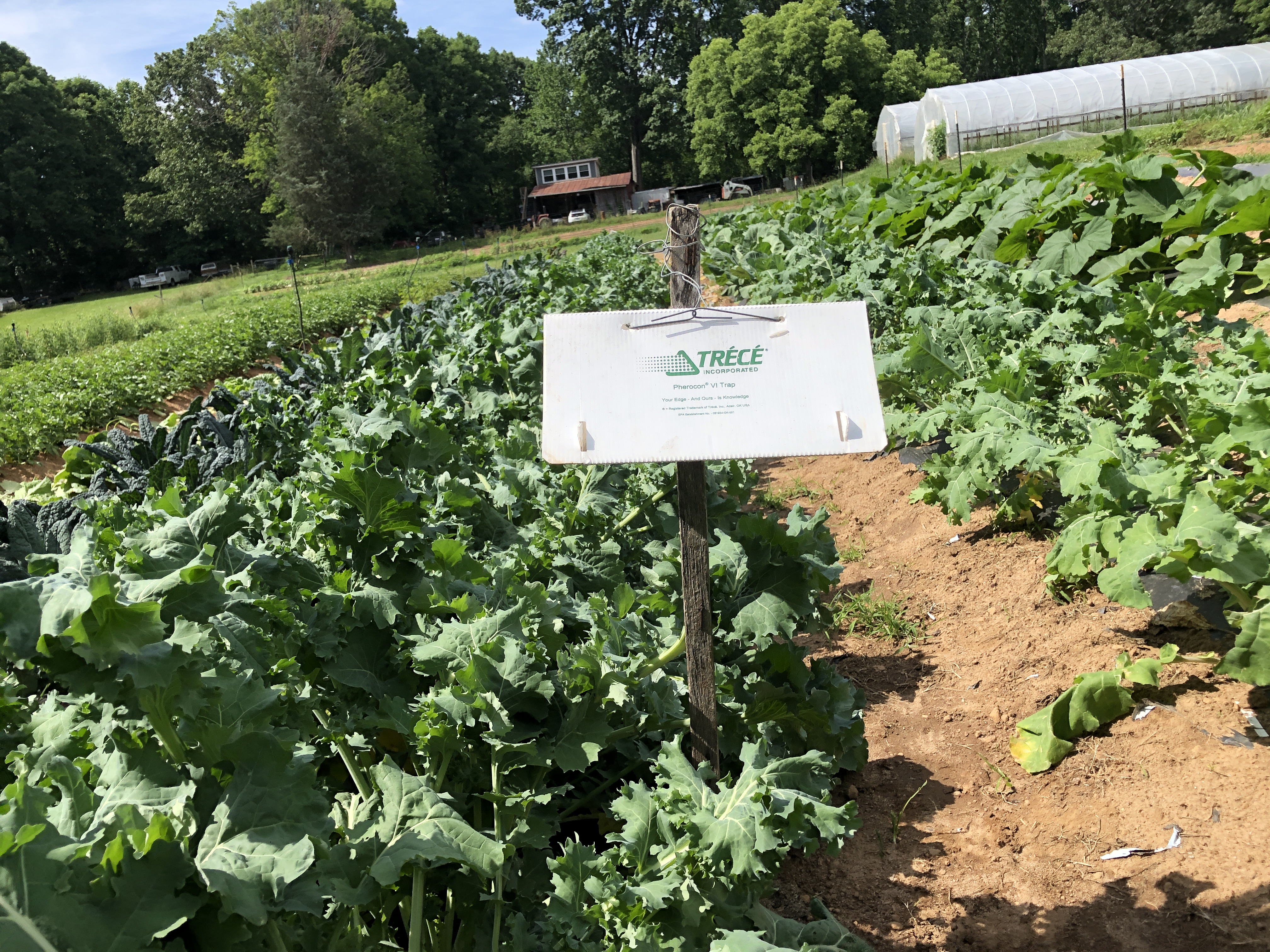Sungold Farm – Field Visit
go.ncsu.edu/readext?949401
en Español / em Português
El inglés es el idioma de control de esta página. En la medida en que haya algún conflicto entre la traducción al inglés y la traducción, el inglés prevalece.
Al hacer clic en el enlace de traducción se activa un servicio de traducción gratuito para convertir la página al español. Al igual que con cualquier traducción por Internet, la conversión no es sensible al contexto y puede que no traduzca el texto en su significado original. NC State Extension no garantiza la exactitud del texto traducido. Por favor, tenga en cuenta que algunas aplicaciones y/o servicios pueden no funcionar como se espera cuando se traducen.
Português
Inglês é o idioma de controle desta página. Na medida que haja algum conflito entre o texto original em Inglês e a tradução, o Inglês prevalece.
Ao clicar no link de tradução, um serviço gratuito de tradução será ativado para converter a página para o Português. Como em qualquer tradução pela internet, a conversão não é sensivel ao contexto e pode não ocorrer a tradução para o significado orginal. O serviço de Extensão da Carolina do Norte (NC State Extension) não garante a exatidão do texto traduzido. Por favor, observe que algumas funções ou serviços podem não funcionar como esperado após a tradução.
English
English is the controlling language of this page. To the extent there is any conflict between the English text and the translation, English controls.
Clicking on the translation link activates a free translation service to convert the page to Spanish. As with any Internet translation, the conversion is not context-sensitive and may not translate the text to its original meaning. NC State Extension does not guarantee the accuracy of the translated text. Please note that some applications and/or services may not function as expected when translated.
Collapse ▲In the 2023 session of Forsyth County Urban Farm School, Horticulture Agent Celine Richard included a tour of Sungold Farm as part of her class curriculum. Farmer Natalie Sevin greeted the students in the field, wearing a wide brimmed hat and with a lovely tinge of red clay on her hands. But her thumb was definitely green. The burgeoning farmers listened eagerly to her experience in agriculture and her practical counsel for farming today. Throughout the tour she shared challenges like tractor repair and practical resources like the classified section of the NC AgReview.
The Sungold team includes farmer Meghan Feilmeier whom Natalie met through apprenticeships on other farms. Natalie’s parents volunteer on the farm, keeping the familial love alive. Anh Nghiem, Natalie’s husband, is the Sungold champion of infrastructure. His expertise in the trades makes their farm a logistical success. Members of the Karenni refugee population of Winston-Salem also work at Sungold.
Natalie and Anh are the proud parents of two children, the second only two weeks old. She has stepped back slightly from farming this season to give her infant extra attention. Meagan, still eager to run with the Community Support Agriculture (CSA) program this year, is gearing up for the first boxes of the season.
The Community-Supported Agriculture (CSA) model is a marketing model whereby local farmers offer unique farm products to buyers who will subscribe to receive a weekly or monthly box of fruits, vegetables, fresh flowers, eggs, meats, cheeses, or any assortment of local farm products. Through the use of CSAs, customers can develop a caring relationship with a local farm, just by purchasing farm products in advance.
Natalie’s career in agriculture began with the Peace Corp in west Africa, serving as a natural resource volunteer. As she notes, it ruined her for deskwork and convinced her that she preferred working with her hands. Her education in farming began in 2007 at the Rodale Institute conducting research, comparing organic and conventional farming practices. She also worked in internships on production farms in Straussburg, Pennsylvania and in Altlanta, Georgia. Learning on other farms gave Natalie the opportunity to learn from the experience of seasoned growers.
Sungold’s total growing space is about 1.5 acres of production for wholesale and direct markets including through Let It Grow Produce, CSA box subscriptions and Cobblestone Farmers Markets. Natalie began today’s farm tour in the greenhouse, “We’re going to start where the plants start.” Trays of the farm’s namesake, sungold tomatoes, lined the shelves alongside black cherry tomatoes. Many of the Sungold Farm seeds come from Southern Exposure Seed Exchange, High Mowing and Johnny’s Selected Seeds.
Surveying the different quadrants of Sungold Farm gives an overview of good growing strategies. In one corner are raised beds with perennial plants, such as chives, and mint other herbs. The beds help them keep rhizome spreading plants like mint in check. For water delivery in the field, quadrants with transplants have drip irrigation lines running under plastic mulch. In direct seeded quadrants there are overhead irrigation sprinklers to ensure that the soil is uniformly irrigated for good germination rates.
One quadrant has been recently used as a bed for growing okra. Sungold has developed a reputation for this value added product, pickling the okra for sale at the Cobblestone Farmers Market. This past season, the okra crop shriveled up and died. N.C. Cooperative Extension Horticulture Agent Celine Richard helped Natalie to diagnose the cause as Southern Root Knot Nematode. Taking that quadrant out of cash crop rotation and planting rapeseed cover crops has been a part of the soil recovery treatment. When tilled into the soil, decaying leaves from this crop suppress root knot nematode levels.
Natalie introduced students to a successful root crop that may not be on popular radar: Jerusalem artichokes, aka sunchokes. Their flower resembles a sunflower, but the harvested section of the plant is its tuber. In appearance, they resemble ginger but their flavor is crunchy and nutty. Some people pickle them. Some people eat them raw. Some people warn against planting them because they will take over, but Natalie notes that they are easy to weed and customers at markets and restaurants keep the demand up. One logistical benefit for farmers is that they can be left in the ground until it freezes and then dug up. That delay gives Natalie a crop that doesn’t have to be immediately harvested when ready.
One innovative solution that Sungold Farm has recently added to their operation is a cooler. In an earlier life, the container used may have been a grocery store delivery truck. Removing the wheels and punching new holes for doors were the beginning of the retrofitting of the 53 foot insulated refrigerated trailer. Sungold wisely constructed an extended roof over the cooler to accomodate a wash/pack station, some space to cure onions, a cover for farm equipment and most important of all: they installed a coolbot inside the trailer for air conditioning. Maintaining freshness and quality of product is of utmost importance to Sungold.
Farmer’s face pressure throughout their growing season. Weed pressure and pest pressure make growing a challenge, so developing strategies for integrated pest management (IPM) is necessary. The goals of IPM include safeguarding the cultivated crops from disease, weeds, insect pests and other harmful organisms all the while reducing one’s dependency on pesticides.
Starting plants in the greenhouse reduces space used in the field during the early season ultimately reducing space that would need weeding in that time period. As they near planting time, covering crop beds with plastic mulch is also part of their IPM strategy. With a small hole punched through to place each transplant, weeds have less space to take hold. Even so, weeds are a reality no matter the precautions, so Sungold Farm is regularly weeding by hand. Natalie shared that her personal tool of choice is the stirrup hoe aka the scuffle hoe.
Understanding the importance of IPM, Sungold Farm eagerly welcomed Extension Agent Celine Richard to gather data on her farm in 2022 and 2023 growing seasons as part of a statewide research effort tracking local populations of the diamondback moth (DBM) which is among the most common and difficult to manage caterpillar pests affecting brassica crops (cabbage, broccoli, cauliflower, collards, turnips). Populations can quickly reach very high numbers and cause severe plant damage. Despite their importance as a pest to our vegetable industry, there is little information on how populations fluctuate during the season or vary in intensity in different production areas. Plus, diamondback moth populations are notorious for developing pesticide resistance, so Sungold Farm’s IPM strategies which include low to no spray practices, could provide valuable subset data information. What this looks like in the Sungold field are posted traps to monitor the weekly census of these pests.
Finishing up the tour, Natalie continued to share her experiences and challenges with IPM with the Urban Farm School students as she endorsed building a working relationship with N.C. Cooperative Extension (NCCE). Working relationships between farmers and NCCE agents are mutually beneficial.
If you are looking to connect with Sungold Farm you may find them at the Cobblestone Farmers Market or sign up for their CSA in coming seasons.
If you have any questions please contact Horticulture Agent, Celine Richard, cvrichar@ncsu.edu, 336.703.2869.





